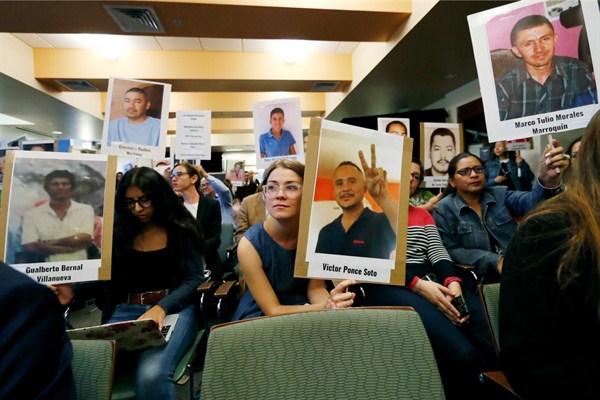The Trump administration’s crackdown on immigrants and asylum-seekers has placed the United States in the same camp as the countries recently denounced by National Security Adviser John Bolton as the “troika of tyranny”—Cuba, Nicaragua and Venezuela. For years, those three countries have denounced or refused to participate in the proceedings of the Organization of American States’ inter-American human rights system when their own violations of democratic norms and human rights are under scrutiny. Over the past two years, the Trump administration has joined their ranks, ignoring or rebuffing the Western Hemisphere’s premier human rights body.
Since Trump’s inauguration, the OAS’ Inter-American Commission on Human Rights, or IACHR, has heard a series of cases involving the Trump administration’s draconian immigration and refugee policies and another on detainees in Guantanamo Bay. In each of those hearings, the Trump administration’s attitude was all but identical to those of the Cuban, Nicaraguan or Venezuelan governments, as it either refused to appear before the commission or condemned the body and its authority.
The IACHR hears cases from civil society and offers recommendations to rectify human rights abuses, while the Inter-American Court of Human Rights, based in Costa Rica, adjudicates cases when litigants refuse to abide by the commission’s recommendations. This system was instrumental in defining the obligations of Latin American governments over forced “disappearances” in the 1980s under several military regimes and has since become a vocal and groundbreaking advocate for women’s rights, indigenous rights, LGBT rights, freedom of expression and political participation. There are now special rapporteurs for each of these issues on the IACHR that hear cases and release their own special reports.

